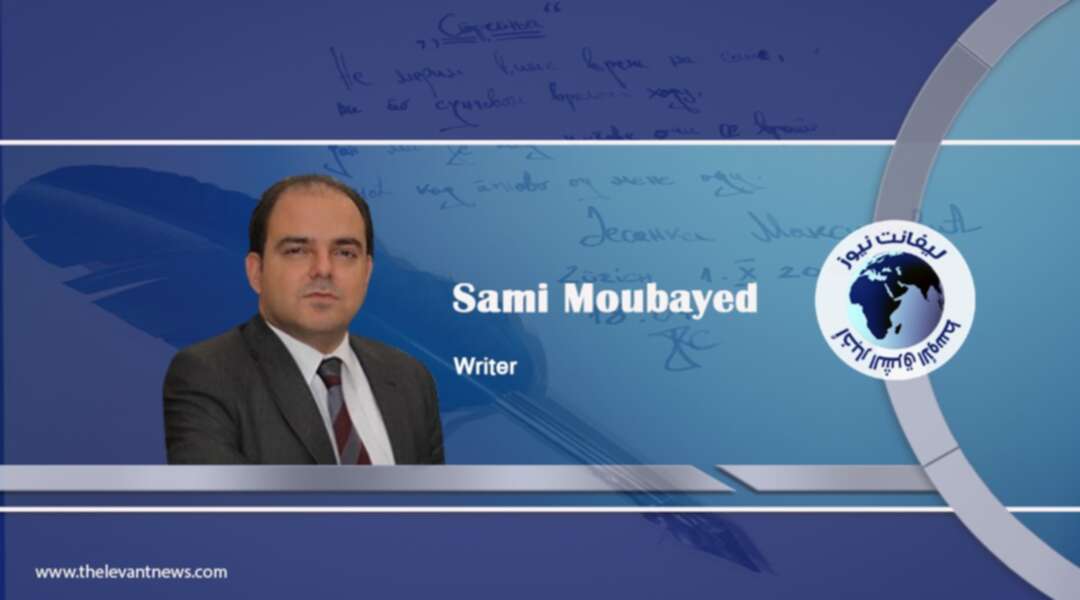-
The Arab Tribes of Khaldeh: A new Sunni component of Lebanon

When Saad al-Hariri announced that he would withdraw from politics last January, many wondered who would replace him as leader of the Lebanese Sunni Muslim community. The three-time former premier also declared a boycott of the upcoming parliamentary elections, scheduled for 15 May 2022. Other Sunni leaders came out to saying that they too won’t be running for office, like former premier Tammam Salam and current prime minister Najib Mikati. Sunnis felt headless and powerless, fearing what lay in store for their community, which had been led by the Hariri family since the 1990s.
The return of Fouad al-Siniora
A handful of Sunni personalities have already spoken up, promising that the community will never be orphaned. One was independent Beirut MP Fouad Makhzoumi, a self-made millionaire who was elected to parliament in 2018. Second was Fouad al-Siniora, a ranking member of Hariri’s Future Movement and former prime minister in 2005-2009. He defied his boss’ orders, encouraging Sunnis to participate in the May elections, both as voters and as candidates, in order to challenge Hezbollah’s control of Lebanon. Siniora has since created a parliamentary list headed by former MP Khaled Qabbani, who is also a member of the Future Movement. Siniora’s list Beirut Tuwajeh (Beirut Confronts) is one among 103 competing for Parliament, allied to the Social Progressive Party of Walid Jumblatt and the Lebanese Forces (LF) of Samir Gagegea.
Support from Saudi Arabia
All of them are campaigning under one banner, promising to “reclaim the state” from Hezbollah. Their campaign is supported by Saudi Arabian ambassador Walid al-Boukhari, who returned to Lebanon this month, after a six-month absence. Saudi-Lebanese relations hit rock-bottom year over a diplomatic row with former Information Minister George Qordahi. He was accused of making pro-Houthi remarks in a television interview, which prompted Riyadh to withdraw its ambassador from Lebanon. Since then, Qordahi has resigned and this month, Boukhari returned to Lebanon, hosting a Ramadan iftar that singled out his country’s friends and allies in Beirut.
The list of invitees shows that Saudi Arabia is not interested in restoring relations with Lebanese officialdom, or with the state in its entirety. Its only interested in working with figures who are vocally anti-Hezbollah. The Saudi ambassador did not visit President Michel Aoun at Baabda Palace, nor did he invite him to the Ramadan iftar. He has met with Siniora, whoever, a long-time friend of Riyadh who has proven, time and again, a willingness to take on Hezbollah. He famously did it in the aftermath of Rafik al-Hariri’s assassination in 2005, and then against in 2006, when he tried (and failed) to dismantle Hezbollah’s telecommunications network at Beirut International Airport. Seated at the iftar table next to Siniora were former presidents Amin Gemayel and Michel Suleiman, who are both ranking members of the anti-Hezbollah camp, but not former president Emille Lahhoud, who remains a staunch Hezbollah ally. Also present were prime ministers Najib Mikati and Tammam Salam, but not ex-premier Hassan Diab, another Hezbollah ally.
The Arab Tribes of Khaldeh
Elsewhere in Lebanon, however, lies a third component, eager and willing to work with Saudi Arabia and to fill the void left behind by Hariri’s absence. They are the Arab tribes of Khaldeh, a coastal town 17-km south of Beirut. They are an understudied Sunni Muslim component of Lebanon that is armed, anti-Hezbollah, and now pushing for more arms, from Saudi Arabia. These Arab tribes settle in the Bekka Valley, side-by-side with Hezbollah. They were first naturalized in the 1950s, given passports by Sunni and Druze leaders in order to wage a war against then Lebanese President Camille Chamoun. A second generation was naturalized by former Rafik al-Hariri in 1994, with the aim of increasing Sunni votes in Lebanon. Back then, rough estimates put their number in the tens of thousands (there has been no official census in Lebanon since 1932) but they now stand at anywhere between 500-600,000.
They are officially represented in parliament through one deputy, being Sheikh Mohammad Suleiman, and are led by two tribal chiefs, Sheikh Riyad Daher and Sheikh Jasem Askar (who hails from the Anazi tribe that transcends the borders of Syria, Jordan, Lebanon, Kuwait, Iraq, and Saudi Arabia). Last summer, they shot a member of Hezbollah, in revenge for the killing of one of their youth in 2020. During his funeral, they killed two more, taking the law into their own hands, claiming that the Lebanese state had failed them. Last November, they set up roadblocks and obstructed traffic leading to Hezbollah’s stronghold in southern Lebanon, objecting to 35 of their youth arrested and convicted for armed clashes with Hezbollah. They had been abducted for taking down Shiite posters during the Ashoura religious occasion of the Shiites. The Arab tribes described themselves as “victims” rather than “aggressors,” coming out with a statement saying: “If they continue to look down upon us, we will respond with our swords.”
Now, all eyes are set on the Arab tribes, after Ambassador Boukhari called them for a meeting at the Saudi Embassy in Beirut. They pledge loyalty to Saudi Arabia, and have often complained that they never received the support that they deserve due to Riyadh’s total reliance on the Hariris since the 1990s. With Hariri gone, that is now history and if the Saudis are looking for a new Sunni party able and wiling to take up arms against Hezbollah, then these tribes are more than willing to do the job. In January 2022, they held a tribal meeting in which they decided to defy Hariri’s boycott and run for parliament, allying themselves with Fouad al-Siniora and the Lebanese Forces.
They are to be watched closely in the upcoming weeks, as they will play a far greater role in Sunni politics in post-Hariri Lebanon—greater than most would have expected.

BY: Sami Moubayed
You May Also Like
Popular Posts
Caricature
BENEFIT Sponsors BuildHer...
- April 23, 2025
BENEFIT, the Kingdom’s innovator and leading company in Fintech and electronic financial transactions service, has sponsored the BuildHer CityHack 2025 Hackathon, a two-day event spearheaded by the College of Engineering and Technology at the Royal University for Women (RUW).
Aimed at secondary school students, the event brought together a distinguished group of academic professionals and technology experts to mentor and inspire young participants.
More than 100 high school students from across the Kingdom of Bahrain took part in the hackathon, which featured an intensive programme of training workshops and hands-on sessions. These activities were tailored to enhance participants’ critical thinking, collaborative problem-solving, and team-building capabilities, while also encouraging the development of practical and sustainable solutions to contemporary challenges using modern technological tools.
BENEFIT’s Chief Executive Mr. Abdulwahed AlJanahi, commented: “Our support for this educational hackathon reflects our long-term strategic vision to nurture the talents of emerging national youth and empower the next generation of accomplished female leaders in technology. By fostering creativity and innovation, we aim to contribute meaningfully to Bahrain’s comprehensive development goals and align with the aspirations outlined in the Kingdom’s Vision 2030—an ambition in which BENEFIT plays a central role.”
Professor Riyadh Yousif Hamzah, President of the Royal University for Women, commented: “This initiative reflects our commitment to advancing women in STEM fields. We're cultivating a generation of creative, solution-driven female leaders who will drive national development. Our partnership with BENEFIT exemplifies the powerful synergy between academia and private sector in supporting educational innovation.”
Hanan Abdulla Hasan, Senior Manager, PR & Communication at BENEFIT, said: “We are honoured to collaborate with RUW in supporting this remarkable technology-focused event. It highlights our commitment to social responsibility, and our ongoing efforts to enhance the digital and innovation capabilities of young Bahraini women and foster their ability to harness technological tools in the service of a smarter, more sustainable future.”
For his part, Dr. Humam ElAgha, Acting Dean of the College of Engineering and Technology at the University, said: “BuildHer CityHack 2025 embodies our hands-on approach to education. By tackling real-world problems through creative thinking and sustainable solutions, we're preparing women to thrive in the knowledge economy – a cornerstone of the University's vision.”
opinion
Report
ads
Newsletter
Subscribe to our mailing list to get the new updates!




















